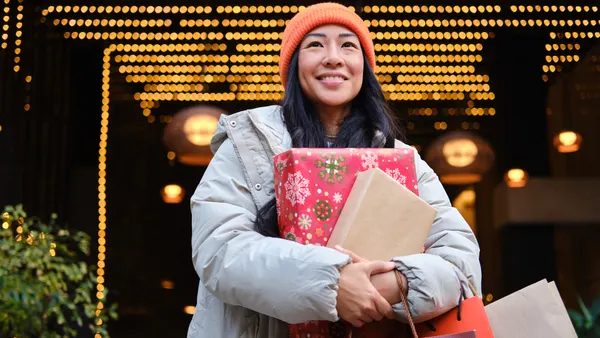[Editor's note: This feature appeared previously on our sister site Food Dive.]
Years and years ago, when we were kids in Boston in the 1960s, the whole family would pile into the station wagon once a month or so and take a trip to one of our favorite spots:
The Sunbeam Bakery thrift store.

It was small room, attached to the side of the Sunbeam bread bakery in an nondescript industrial park near the Neponset River. And that room contained a cash register, a clerk, and shelves full of discounted Sunbeam bread and Sunbeam rolls.
For reasons that hard to fathom now, we found that completely wonderful when we were seven-years old. There was something that we simply adored about a store that sold just one thing. And we remember telling our parents how great it would be if the whole world was like that and everything had its own store—a milk store and a cereal store and a G.I. Joe store and a store for baseball bats and a different store for the baseballs themselves.
Alas, that world existed only in our imagination—until we got older. Because today single-brand stores are everywhere—and often they are single-food-or-beverage brand stores.
The phenomenon is called direct-to-consumer (DTC) retail. The major players in the space have tended to be in electronics (Apple, Dell, Sony ,etc.) or clothing and accessories (Coach, Burberry, Levi's, etc.). But food and beverage brands are catching up quickly. Consider just the following examples from recent weeks.
1. PAULA DEEN FOODS
Television cook Paula Deen had built a multimillion dollar business through deals with Walmart, Target, Walgreen's and others. But all that began to fall apart when Deen admitted to using a racial slur. But within months the queen of Southern cooking decided she would stage her comeback from the far north—by announcing plans to open a retail store for her brands in Buffalo, N.Y.

2. GHIRADELLI CHOCOLATE CO.
Chocolate companies constitute a significant subset of DTC retail. Godiva operates multiple stores across the country. And Hershey's and M&Ms both operate DTC retail flagship stores in New York's Times Square. San Francisco-based Ghirardelli is another long-time player in DTC retail, operating 18 retail ice cream and soda shops in five states. Its flagship store is, appropriately enough, in San Francisco's historic Ghirardelli Square. Recently Ghirardelli's has taken a slightly different tack in its approach by partnering with one of the kings of DTC retail: Disney.

3. KEURIG
One classic approach to DTC retail is the so-called "experience" store, designed to foster a deeper relationship with a brand. (If you've ever spent an entire day in the American Girl Place store, journeying with a child from hair salon to doll hospital to movie theater, you know what we're talking about.) Single-serving coffee maker maker brand Keurig recently opened its first DTC shop—an experience store in the upscale Burlington Mall outside Boston.

4. LAVAZZA
It's possible that Keurig's decision to go DTC was prompted by the success of Lavazza. The family-owned brand has been around since 1895. And it too makes single-serving coffee machines (as well as other brewers and a slew of branded coffee blends.) Lavazza generated lots of positive attention when it opened a cafe in Italian food heaven: Eataly New York. That cafe proved so successful that Lavazza is opening a similar operation in Eataly Chicago.

If you want to learn some more about DTC retailing, check out this guide from the Kurt Salmon management consultancy. And if you're like us and have fond memories of bakery thrift stores, have a look at this listing of bread makers that that still run thrift shops.
Would you like to see more retail news like this in your inbox on a daily basis? Subscribe to our Retail Dive email newsletter! You may also want to read Retail Dive's look at five big-name pop-up shops invading retail this season.














